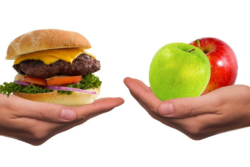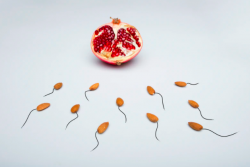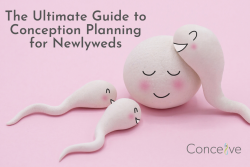When you think of vitamin C, you probably think about colds, oranges and chicken noodle soup. It’s certainly important for immunity, but did you know it also plays a role in fertility?
In the following article, Dr. Camille Krause, ND at Conceive Health @ TRIO KW explains everything you need to know about Vitamin C, the role it plays in fertility, and how to make sure you’re getting enough.
What is vitamin C?
In a nutshell, Vitamin C is one of our most cost-effective and accessible nutrients for fertility. As a nutrient, it falls under the category of antioxidants. Antioxidants are THE thing we want for egg and sperm quality.
Antioxidants are a huge category that includes:
- Vitamins (C, E, D)
- Minerals (selenium, zinc)
- Phytonutrients (the molecules from colourful plants that have medicinal properties, like quercetin, resveratrol, beta carotene)
You’ve heard of blueberries being great antioxidants, and it’s because they combine these different elements in one beautiful package.
How does it impact fertility?
Antioxidants are important for counteracting oxidative stress, which damages eggs and sperm. Oxidative stress is a normal process in the body but can be made worse by:
- environmental pollution
- smoking
- alcohol
- and poor nutrition
Of course, it’s important to avoid those things while trying to conceive — but sometimes, a person’s ability to buffer oxidative stress is compromised because of genetics. And even patients in excellent health who are avoiding the obvious sources of oxidative stress could use some extra help.
How much Vitamin C should I take?
When it comes to fertility, the research rarely looks at Vitamin C alone. However, from what we can see, the benefits for egg and sperm intake range from 500mg-2000mg per day, often for a minimum of 3 months.
So how do I get that from my food?
This is where it gets interesting. Did you know that the “daily recommended intake” for Vitamin C is only about 80mg? This means that when you have a glass of orange juice, and it says you’re getting 100% of your daily Vitamin C, you’re still only at about 8% of your goal intake for fertility. This is where sometimes food can fall short and where supplements are an easy way to fill the gaps.
But that doesn’t mean you should rely on supplements alone. As a whole, antioxidants are really helpful when combined together, rather than any one particular antioxidant being queen. This concept emphasizes the benefits of a nutrient-dense, whole foods diet (which one study summarized completely: “A low intake of antioxidant nutrients is associated with poor semen quality in patients attending fertility clinics” Mendiola et al 2010.)
I have also seen studies concluding “no effect” from various nutrient combination products. I would note a few things could be happening: we can’t completely out-supplement all lifestyle habits, some multivitamin formulas are low quality (low nutrient amounts, poor absorbability), and supplements are not the be-all-end-all of fertility.
Overall, start with a healthy diet rich in whole foods, support with supplements tailored to you, and get testing done to understand where to prioritize.
If you would like to learn more or book an appointment with a Conceive Health fertility naturopath, contact us today!










